 8 citations,
March 2018 in “Cosmetics”
8 citations,
March 2018 in “Cosmetics” UV radiation damages hair by creating holes and peeling cuticle layers.
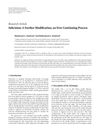 8 citations,
January 2012 in “Dermatology Research and Practice”
8 citations,
January 2012 in “Dermatology Research and Practice” New subcision technique with a bent needle and syringe improves ease, effectiveness, and comfort for treating acne scars.
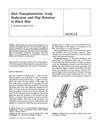 8 citations,
January 1986 in “The Journal of Dermatologic Surgery and Oncology”
8 citations,
January 1986 in “The Journal of Dermatologic Surgery and Oncology” Hair loss surgeries like grafts, scalp reductions, and flap rotations can be effective for black men with proper technique adjustments.
 7 citations,
March 2019 in “Journal of cosmetic dermatology”
7 citations,
March 2019 in “Journal of cosmetic dermatology” African hair has the most lipids, while Caucasian hair is more hydrated and stronger.
 7 citations,
January 2013 in “Indian Journal of Plastic Surgery”
7 citations,
January 2013 in “Indian Journal of Plastic Surgery” Body and beard hair can be used for hair transplants in baldness treatment but keep their original color and curl.
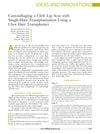 6 citations,
July 2007 in “Plastic and Reconstructive Surgery”
6 citations,
July 2007 in “Plastic and Reconstructive Surgery” Single-hair transplantation with a Choi hair transplanter effectively hides cleft lip scars in men.
 6 citations,
May 2004 in “Facial Plastic Surgery Clinics of North America”
6 citations,
May 2004 in “Facial Plastic Surgery Clinics of North America” By 2004, Follicular Unit Transplantation (FUT) was the most effective method for surgical hair restoration, while the newer Follicular Unit Extraction (FUE) had more disadvantages and was less recommended.
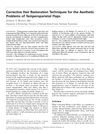 6 citations,
March 2003 in “Dermatologic Surgery”
6 citations,
March 2003 in “Dermatologic Surgery” Dr. Dominic A. Brandy developed successful techniques to fix unnatural looks caused by old hair restoration methods, and using oral finasteride and topical minoxidil can help control hair loss in most men.
 6 citations,
April 1985 in “Australasian journal of dermatology”
6 citations,
April 1985 in “Australasian journal of dermatology” The cause of the syndrome with scalp scaling and hair loss is unknown.
 5 citations,
August 2005 in “Facial Plastic Surgery Clinics of North America”
5 citations,
August 2005 in “Facial Plastic Surgery Clinics of North America” Midface surgery complications are generally rare and manageable with skilled surgery and informed patients.
 4 citations,
June 2021 in “Scientific Reports”
4 citations,
June 2021 in “Scientific Reports” Hair fiber shape and curvature are not significantly linked when ancestry is considered.
 4 citations,
June 2018 in “Journal of Cosmetic Dermatology”
4 citations,
June 2018 in “Journal of Cosmetic Dermatology” The new A-design punch for hair restoration surgery may lead to smaller scars compared to other types.
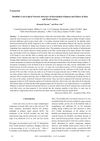 4 citations,
January 2015 in “Sen'i Gakkaishi”
4 citations,
January 2015 in “Sen'i Gakkaishi” Hair and wool strength is affected by the number and type of bonds in their protein structures, with hair having more protein aggregates than wool.
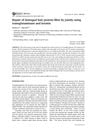 3 citations,
January 2021 in “ScienceAsia”
3 citations,
January 2021 in “ScienceAsia” Using an enzyme and keratin treatment can significantly repair and strengthen damaged hair.
 3 citations,
July 2018 in “Journal of Cosmetic Dermatology”
3 citations,
July 2018 in “Journal of Cosmetic Dermatology” Ahmad's sharp scissor technique reduces hair follicle damage without taking more time.
 3 citations,
April 2017 in “Dermatologic Surgery”
3 citations,
April 2017 in “Dermatologic Surgery” Laser hair removal can be an effective last-resort treatment for men with stubborn Alopecia Areata who want to be uniformly bald.
 3 citations,
October 1993 in “The Journal of Dermatology”
3 citations,
October 1993 in “The Journal of Dermatology” The review suggests limited treatments for common hair loss conditions, with potential for future improvements.
 3 citations,
January 1977 in “Archives of Dermatology”
3 citations,
January 1977 in “Archives of Dermatology” Unable to summarize document.
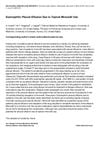
A woman's use of minoxidil for hair loss caused fluid buildup in her chest, which went away when she stopped using the product.
 2 citations,
June 2012 in “Journal of Cosmetic Dermatology”
2 citations,
June 2012 in “Journal of Cosmetic Dermatology” Hair transplant using beard hair made acne scars on cheeks less visible with minimal scarring in the donor area.
 2 citations,
December 2008 in “Journal of Chemical Crystallography”
2 citations,
December 2008 in “Journal of Chemical Crystallography” The research shows that hydrogen bonds greatly affect the crystal structure of a Finasteride derivative.
 2 citations,
September 2007
2 citations,
September 2007 Surgical hair restoration involves moving hair from a non-balding area to a balding area, with the transplanted hair not subject to male pattern baldness. Medications can slow hair loss and regrow some hair, but successful treatment needs careful planning, skill, and ethical responsibility due to progressive hair loss and limited donor hair.
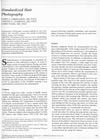 2 citations,
November 1996 in “Dermatologic Surgery”
2 citations,
November 1996 in “Dermatologic Surgery” Standardization in hair restoration photography is crucial for accurate comparison of surgical results.
 1 citations,
September 2020 in “Journal of The American Academy of Dermatology”
1 citations,
September 2020 in “Journal of The American Academy of Dermatology” Using three-hair grafts from the back of the head for eyebrow transplantation offers a natural look and reduces scarring.
 1 citations,
January 2018 in “Side effects of drugs annual”
1 citations,
January 2018 in “Side effects of drugs annual” Diuretics can cause serious side effects and should be used carefully.
 1 citations,
October 2017 in “Dermatologic Surgery”
1 citations,
October 2017 in “Dermatologic Surgery” More men are getting cosmetic treatments to look young and stay competitive at work.
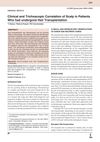 1 citations,
January 2017 in “International Journal of Dermoscopy”
1 citations,
January 2017 in “International Journal of Dermoscopy” A dermatoscope is important for evaluating hair transplants and managing patient expectations.
 1 citations,
September 2016 in “Indian Journal of Plastic Surgery”
1 citations,
September 2016 in “Indian Journal of Plastic Surgery” The new hair follicle harvesting technique improves hair transplant results and makes the procedure quicker and easier to learn.
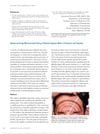 1 citations,
May 2016 in “Dermatologic Surgery”
1 citations,
May 2016 in “Dermatologic Surgery” The document concludes that using a phototrichogram with a protractor and tapeline is a reliable and noninvasive way to measure hair loss.
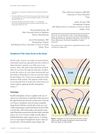 1 citations,
December 2015 in “Dermatologic Surgery”
1 citations,
December 2015 in “Dermatologic Surgery” Double trichophytic closure effectively treats thin scalp scars and reduces patient costs.






























